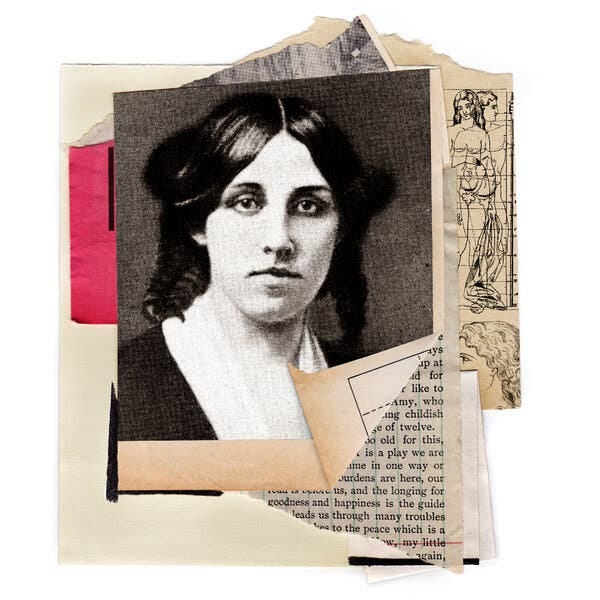Not a fan of the trend of stripping exceptional women of their sex on the reasoning that—because they were exceptional—that means they must have been men all along. We used to call this kind of thing sexist, but now we're meant to call it progressive instead.
As far as Louisa May Alcott goes, lots of women throughout history have longed to be men for lots of reasons. You don't need a PhD in gender studies to understand why that might be. Just look at Afghanistan today, where women can no longer go to school or work and cannot even go to a park or run errands on their own. Think any of those women long to have been born as male, so they could finish their educations, put their skills to use, show their faces in public, and move freely about the world?
Was Sylvia Plath a transman in denial when she wrote that “being born a woman is my awful tragedy. From the moment I was conceived I was doomed to sprout breasts and ovaries rather than penis and scrotum; to have my whole circle of action, thought and feeling rigidly circumscribed by my inescapable femininity. Yes, my consuming desire to mingle with road crews, sailors and soldiers, bar room regulars--to be a part of a scene, anonymous, listening, recording--all is spoiled by the fact that I am a girl, a female always in danger of assault and battery. My consuming interest in men and their lives is often misconstrued as a desire to seduce them, or as an invitation to intimacy. Yet, God, I want to talk to everybody I can as deeply as I can. I want to be able to sleep in an open field, to travel west, to walk freely at night...” This would be an ahistorical reading of Plath, not to mention a shallow and impoverished one. Plath speaks of complicated desires, or rather desires that are complicated by her sex. Overwrite the basic facts of her life and you lose sight of who she was and the world she lived in. You drain the blood from her poems.
The language of identity we use today did not exist in Alcott's time and that means the self-understandings of today did not exist either. New ways of conceptualizing who we are bring new types of people into being. To take a lighthearted example, there were sci-fi fans in the 1930s but there weren't Star Trek fans because Star Trek hadn't been created yet. Even if you're sure Jules Verne or H G Wells would have loved Star Trek, digging Verne and Wells up and dressing them up as Trekkies would be... digging up dead people and dressing them in ideas they never encountered. Falsifying the past, in other words. People are free to do this but shouldn't forget that they're writing historical fan fiction, not history.
Alcott did not understand her desires in 21st-century terms because she did not live in the 21st century, just as Queen Elizabeth I, who died in 1603, did not identify as nonbinary, a concept that’s younger than the microblogging site Tumblr. Meanwhile, Alcott was female, lived as a woman, wrote about the inner lives of (unconventional!) women, and even published as a woman (under her own name as well as various female pseudonyms) at a time when many female authors (George Elliot, the Bronte sisters) published under male pen names. I could go on, but do I need to?
When you have an agenda, it's tempting to enlist people who can no longer say yes or no to your cause. Any objections they might have had lie with them in the grave. From dry bones and pure conjecture, you create a person who never lived.





I completely agree with you. I think this is both sexist and insulting to women.
It's outrageous nonsense, and I don't understand why it is tolerated! I still can't quite believe that the play, where Joan of arc was made into a 'trans' character was actually performed and apparently celebrated. Enough, already!!!